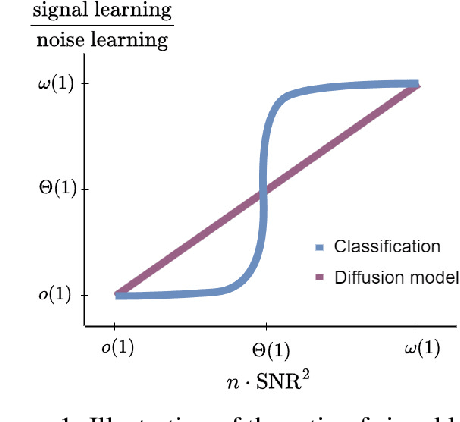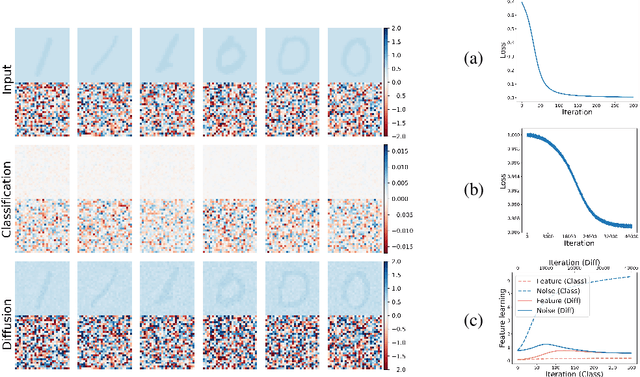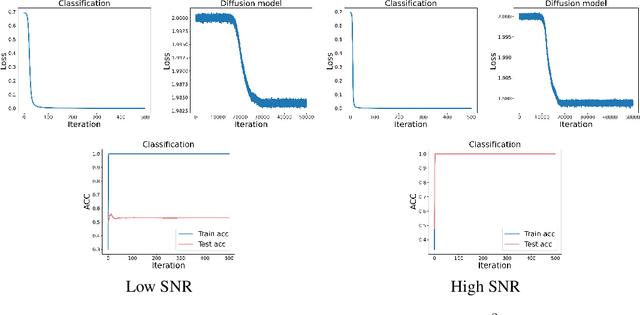On the Feature Learning in Diffusion Models
Paper and Code
Dec 02, 2024



The predominant success of diffusion models in generative modeling has spurred significant interest in understanding their theoretical foundations. In this work, we propose a feature learning framework aimed at analyzing and comparing the training dynamics of diffusion models with those of traditional classification models. Our theoretical analysis demonstrates that, under identical settings, diffusion models, due to the denoising objective, are encouraged to learn more balanced and comprehensive representations of the data. In contrast, neural networks with a similar architecture trained for classification tend to prioritize learning specific patterns in the data, often focusing on easy-to-learn components. To support these theoretical insights, we conduct several experiments on both synthetic and real-world datasets, which empirically validate our findings and highlight the distinct feature learning dynamics in diffusion models compared to classification.
 Add to Chrome
Add to Chrome Add to Firefox
Add to Firefox Add to Edge
Add to Edge